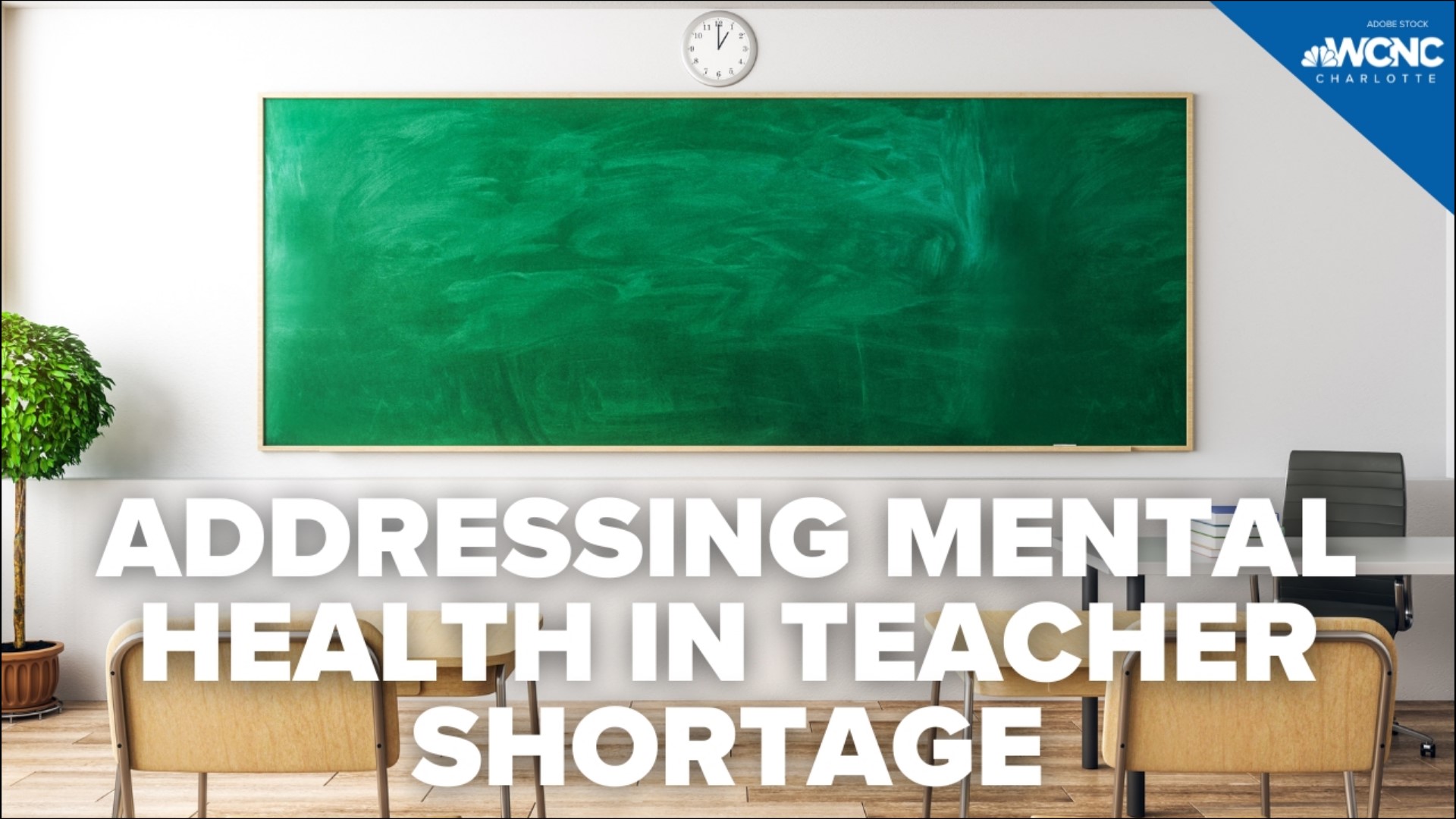CHARLOTTE, N.C. — Time is almost up before students are back in school hallways.
Mental health experts are asking parents and educators to be on high alert with respect to students this year.
“To be honest, it's like a mixture of like different feelings," Zauryn Moore, a Charlotte-Mecklenburg Schools senior at Hopewell High School, said. "Like, I'm ready to get out of school, but I don't want it to go by like so fast."
Those are typical feelings for an upcoming senior — but this year comes with added pressure. Returning to the classroom comes with added heaviness related to pandemic learning loss and safety concerns.
“A lot of these kids are coming into this year, not really having completely normal school years, you know, over the last few years due to COVID," Molly McDonnell, licensed clinician social worker at Thriveworks, said. "And so they're also coming in with some educational disadvantages."
This is on top of teacher shortages, violence in schools, and a lot more.
"Broader things that are happening such as, you know, abortion debate, and things like that and climate change are very much on kids' minds," McDonnell said.
Changes in your student’s grades, lack of energy, and withdrawal from social settings are all typical indications they may need help. Experts say it’s essential to instill coping skills in teens.
They can lean on their friends.
“Like we can tell when each other are like stressed," Moore said. "So we have like this thing where we hang out at somebody's house. And we like, have like just a chill night. Talk about things that happen in life, watch a movie and just chill.”
Parents can also empower their children to take assignments one step at a time and lower goals, so they’re a bit more manageable.
“Social-emotional learning is absolutely important in the schools," McDonnell said.
It’s vital for students to develop self-awareness, self-control, and social skills for school, work, and life success.
The district, like many others, does not have the nationally-recommended ratio.
School-related pressure is also causing some teachers to leave the classroom.
"The stress on them to perform as far as test scores go and things like math and reading, are consistently taking precedent over the social-emotional learning," McDonnell said.
Students can feel the stress emanating from the front of the classroom.
"I remember this one time I think like the class was like talking a little too much," Moore said about a teacher in class, "And like she just like yelled, and she's never done that before."
Moore said she understood the frustration and pressure teachers are facing.
Experts say when teachers are facing professional and personal pressure it becomes a challenge to address students' emotional wellbeing.
"Teachers are very stressed and overworked as well, and really don't feel like they have the bandwidth to be able to address those emotional issues," McDonnell said.
Experts are asking school administrators and parents to lead with empathy this year.
"Definitely seek help if you're feeling like you're not able to be the parent that you want to be or the teacher that you want to be," McDonnell said.
Taking care of teachers' and students' emotional health can lead to a more successful classroom.
Contact Shamarria Morrison at smorrison@wcnc.com and follow her on Facebook, Twitter and Instagram.
If you or a loved one are facing thoughts of suicide or self-harm, there is help readily available. You can call Suicide and Crisis Lifeline at 988 or chat with them online. There are also resources in North Carolina available here and in South Carolina available here.

